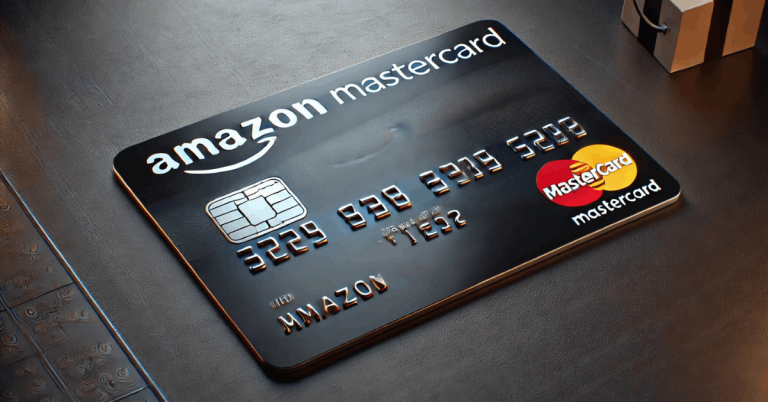Protecting your money is essential during rising prices and unpredictable economic shifts. This article aims to equip you with practical strategies to safeguard your finances.
We’ll cover investment tips, budgeting advice, and ways to manage risk during uncertain times. By the end, you’ll have the tools to protect your money against inflation and economic uncertainty.
Understanding Inflation and Economic Uncertainty
Inflation and economic uncertainty are key factors that affect your financial stability. Understanding them is the first step toward securing your money.
What is Inflation?
Inflation is when the prices of goods and services rise over time, decreasing your purchasing power. As inflation increases, what you could buy for $100 may only cost $90.
For example, in the 1970s, inflation caused the price of gas and food to rise sharply. This shows how inflation impacts everyday expenses and savings.
What is Economic Uncertainty?
Economic uncertainty occurs when the economy’s future is unclear due to factors like political events or natural disasters. This uncertainty can cause financial markets to fluctuate, making predicting future income or expenses harder.
It also creates job risks, as companies may reduce hiring or even lay off workers. Additionally, it can negatively affect savings, as people tend to hold back on spending and investment.
Strategies for Protecting Money
Protecting your money involves using smart, effective strategies. This section outlines various ways to safeguard your finances against inflation and economic uncertainty.
Diversifying Investments
Spreading your investments across different asset classes, like stocks, bonds, and real estate, can help manage risk.
Diversification reduces the impact of losses in any one area. It’s essential during volatile periods, as different assets react differently to economic changes.
Investing in Inflation-Protected Assets
Inflation-protected securities like Treasury Inflation-Protected Securities (TIPS) are designed to keep up with inflation.
Gold and precious metals are often seen as safe-haven assets during economic uncertainty. Real estate also tends to appreciate over time, helping it keep pace with inflation.
Stock Market and Equities
Investing in stocks of companies with strong pricing power helps during inflation, as these companies can raise prices without losing customers.
A long-term approach is key, allowing you to ride out short-term fluctuations. Over time, well-chosen stocks can provide growth even during inflationary periods.
Cash and Liquid Assets
Managing cash reserves during inflation is essential, but holding too much can be risky.
Cash loses value over time as inflation increases, so it’s better to keep just enough for emergencies. Large cash reserves will not grow and will lose purchasing power during inflation.
Budgeting and Expense Management
Cutting unnecessary spending helps protect your finances during uncertain times. Reducing discretionary spending allows more focus on essential expenses.
Tracking and adjusting your budget regularly helps combat rising costs and ensures savings are prioritized.
Hedging Against Inflation Through Non-Traditional Investments
Non-traditional investments can help you manage risk during uncertain times. This section covers using alternatives like cryptocurrencies, commodities, and collectibles to hedge against rising costs.
Cryptocurrencies and Digital Assets
Cryptocurrencies have become popular as a hedge against inflation because they are decentralized and not tied to traditional currencies.
However, investing in them comes with high risks due to market volatility and regulatory uncertainty. Despite the risks, they offer the potential for significant rewards if their value rises.
Commodities
Investing in commodities like oil, agricultural products, and metals can help protect your money from rising prices.
These assets often rise in value when inflation increases, making them a good hedge. Commodity investments can serve as a buffer during times of high price pressure.
Collectibles and Alternative Investments
Investments in art, rare items, and other non-traditional assets can hold their value over time.
These collectibles often perform well when traditional markets are unstable. As a result, they can provide a reliable option to protect wealth during periods of high inflation.
Preparing for Economic Uncertainty
Being prepared for uncertain times is vital for protecting your financial well-being. This section covers essential steps like building an emergency fund, reducing debt, and planning for risks.
Emergency Fund
An emergency fund is crucial for handling unexpected expenses, like medical bills or job loss.
Aim to save enough to cover 3 to 6 months of living expenses and keep it in a safe, easily accessible place. A high-yield savings or money market account is a good option for storing this fund.
Reducing Debt
Debt can become a heavy burden during times of financial stress. High-interest debt, in particular, should be paid off as quickly as possible to avoid accumulating more interest.
Strategies like prioritizing high-interest debts and making extra payments can help reduce your overall debt load.
Financial Planning and Risk Management
A financial plan that accounts for unexpected circumstances can give you peace of mind. Risk management involves identifying potential financial risks and preparing strategies for them.
Working with a financial advisor helps you create a long-term plan with contingencies for uncertain times.
Future-Proofing Your Financial Situation
Preparing for the future involves developing income sources and improving your financial knowledge. This section discusses how to build additional income streams and enhance financial literacy.
Developing Multiple Income Streams
Having multiple sources of income can help protect against job loss or financial downturns.
Consider options like side jobs, freelance work, or investments to create stability. These extra income streams can serve as a financial cushion during difficult times.
Fostering Financial Literacy
Improving your personal finance, economics, and investing knowledge can help you make informed decisions. Stay updated with books, online courses, and podcasts focused on financial education.
Continuously learning about these topics enables you to adapt to changes and plan for the future.
The Bottom Line: How to Protect Your Money Against Inflation and Economic Uncertainty
In today’s unpredictable world, protecting your money against inflation and economic uncertainty is essential. By diversifying investments, building an emergency fund, and reducing debt, you can reduce the risks to your financial future.
Creating multiple income streams and improving your financial literacy will also help you adapt to challenges. The key is staying proactive and adjusting your strategies to preserve wealth.
In the end, understanding these strategies gives you control over your finances, even in uncertain times.












